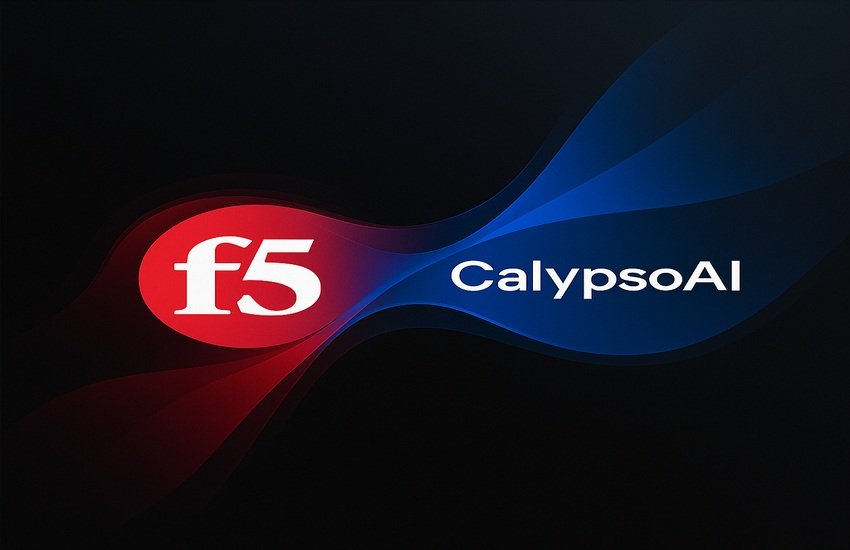F5 Networks (NASDAQ:FFIV) is moving aggressively to deepen its footprint in AI security, announcing plans to acquire CalypsoAI for $180 million in cash. The deal, expected to close in the fourth quarter of fiscal 2025, comes on the heels of F5’s strongest product revenue growth in over a decade, buoyed by data center modernization, hybrid multi-cloud adoption, and increasing AI-related workloads. CalypsoAI, headquartered in Dublin, Ireland, specializes in adaptive real-time AI security solutions, including red-teaming at scale and advanced data protection for enterprises deploying generative and agentic AI. F5 intends to integrate these capabilities into its Application Delivery and Security Platform (ADSP), which has already seen growing traction among enterprises seeking unified application delivery, API security, and AI-ready infrastructure. While management has said the acquisition will be immaterial to near-term financials, the potential strategic synergies could prove more meaningful over time, particularly as F5 positions itself to secure the next wave of AI-driven application environments.
Enhanced AI Security Integration Across ADSP
One of the most immediate benefits F5 could derive from acquiring CalypsoAI lies in bolstering its Application Delivery and Security Platform (ADSP) with native AI security capabilities. F5 has already highlighted the ADSP as a differentiator, enabling enterprises to consolidate disparate security and delivery tools across hybrid multi-cloud environments, but the growing complexity of securing AI-driven applications is a gap that needs to be addressed. CalypsoAI’s technology is purpose-built to tackle emerging risks such as data leakage, model poisoning, adversarial attacks, and prompt injection. By embedding CalypsoAI’s adaptive defense mechanisms into ADSP, F5 could present customers with a unified platform that not only manages performance and resiliency but also ensures that sensitive AI inference workloads remain secure across deployment models. This would reinforce F5’s positioning at the convergence of application security and delivery—an area increasingly under pressure as enterprises scale generative AI workloads. Importantly, CalypsoAI’s ability to automate red-teaming at scale adds a proactive dimension, enabling customers to continuously test and harden their AI systems rather than relying solely on static defenses. The integration could also extend to F5’s AI Gateway and AI Assistant initiatives, offering real-time monitoring and automated remediation of AI-related threats. For customers struggling with fragmented security tooling, a consolidated platform could translate into lower operational overhead, faster deployment cycles, and reduced exposure to AI-specific vulnerabilities. For F5, it provides another lever to deepen wallet share with enterprises modernizing their infrastructure, aligning security spending with data center refresh cycles and hybrid cloud expansion.
Strengthening Competitive Differentiation In AI Infrastructure
F5’s recent earnings call underscored how customers are increasingly investing in AI readiness, modernizing data centers to handle surging data flows, and optimizing GPU utilization in AI factories. While these trends have supported strong demand for F5’s systems and software, competition from cloud-native security players, hyperscalers, and emerging startups remains intense. Integrating CalypsoAI could sharpen F5’s competitive edge by allowing it to position ADSP not merely as an application delivery and API security platform but as a specialized solution for AI inference security. In contrast to traditional web application firewalls or network security appliances, CalypsoAI’s adaptive threat models are trained specifically for the unique risks of AI environments. This means F5 could differentiate by addressing threats that competitors are not yet fully equipped to counter, such as inference-time adversarial manipulation or unauthorized use of foundation models. Moreover, as enterprises weigh the risks of deploying generative AI at scale, security concerns are often cited as a top barrier to adoption. Offering integrated, AI-native security could accelerate enterprise willingness to expand AI use cases, translating into incremental demand for F5’s broader portfolio of delivery and security services. With partnerships already underway with NVIDIA and MinIO to optimize AI infrastructure, the addition of CalypsoAI’s specialized tooling could complete the value proposition, ensuring that F5’s solutions are not just high-performing but also inherently secure in AI-heavy environments. This layered differentiation may be particularly compelling for regulated industries such as healthcare, finance, and government, where AI security risks carry outsized consequences and compliance obligations.
Expanding F5’s Role In Regulated & High-Security Markets
Another synergy for F5 lies in the potential to expand into regulated and security-sensitive markets where AI adoption is accelerating but constrained by compliance and risk management concerns. F5 already serves large enterprises, governments, and service providers that represent the majority of its product bookings, and CalypsoAI’s heritage in providing AI security to defense and critical infrastructure clients could extend F5’s reach in these sectors. By integrating CalypsoAI’s tools, F5 could offer not only application delivery and API security but also a compliance-ready framework for AI systems, aligning with data protection laws, sectoral regulations, and international standards. This could be particularly relevant for government agencies and financial services firms that are exploring AI use cases but require assurance against data leakage, adversarial manipulation, or systemic vulnerabilities. CalypsoAI’s scalable red-teaming capabilities could also help customers meet audit and regulatory requirements more efficiently, turning what is often a manual and costly process into an automated, continuous assessment. For F5, this presents an opportunity to increase its share of wallet in accounts where security budgets are often ring-fenced and less cyclical than general IT spending. It also diversifies F5’s revenue base beyond commercial enterprises, deepening exposure to sectors where AI adoption is not optional but strategic. Given the lumpy nature of F5’s service provider business and the slowing trajectory of perpetual software licenses, expanding into more stable, compliance-driven verticals could offer balance. The acquisition thus creates a pathway for F5 to embed itself more deeply into mission-critical AI deployments where switching costs are high and competitive displacement is rare, reinforcing recurring revenue streams tied to regulatory mandates rather than discretionary spend.
Unlocking Cross-Sell & Recurring Revenue Opportunities
Finally, the acquisition of CalypsoAI could create new cross-sell and recurring revenue opportunities across F5’s installed base, where subscription and services already represent 73% of revenue. With enterprises increasingly adopting subscription models for software and security, embedding CalypsoAI capabilities into ADSP subscriptions or as a standalone SaaS offering could boost both attach rates and average contract values. Customers already consuming F5’s WAAP, API security, and distributed cloud services could be offered incremental AI security modules, reducing vendor sprawl while driving higher net retention rates. For F5, this aligns with its broader strategy of shifting to renew-and-expand motions in software, where growth is driven by customers consuming additional features and use cases at the point of renewal. Moreover, AI-related workloads present a relatively untapped upsell lever—customers investing in AI data delivery and runtime security could be encouraged to add CalypsoAI-driven inference protection as part of their subscription. This could be particularly powerful as F5 enters the FY26 renewal cycle, where mid-single-digit software growth is expected due to a weaker 2023 comparison base. By layering new AI-specific modules, F5 could offset some of the renewal cycle headwinds while reinforcing the stickiness of its platform. The fact that CalypsoAI’s offerings are cloud-native and agent-based also makes them highly scalable and conducive to SaaS delivery, supporting F5’s goal of expanding recurring revenue without requiring heavy hardware investment. Over time, embedding AI security as a core feature of F5’s subscriptions could not only increase revenue visibility but also enhance customer lock-in, as enterprises standardize on a single vendor for both application delivery and AI inference protection.
Key Takeaways
F5’s proposed $180 million acquisition of CalypsoAI represents a strategic attempt to align its platform with the security demands of AI-driven applications. Potential benefits include tighter integration of AI security into its ADSP platform, sharper differentiation in the AI infrastructure market, expanded relevance in regulated industries, and the creation of new cross-sell and subscription-based revenue streams. At the same time, challenges remain: CalypsoAI is still a relatively small, private company, making the financial impact immaterial in the near term, and integration risks could limit the speed at which synergies are realized. Furthermore, competition in AI security is intensifying, with hyperscalers and startups alike vying for share. From a valuation perspective, F5 is not inexpensive, trading at LTM EV/EBITDA of 21.2x and LTM P/E of 29.5x, with forward multiples also trending higher. While the acquisition may provide strategic alignment, the financial return on investment will depend on execution and customer adoption, leaving the deal as both an opportunity and a risk in the context of F5’s broader growth trajectory.






